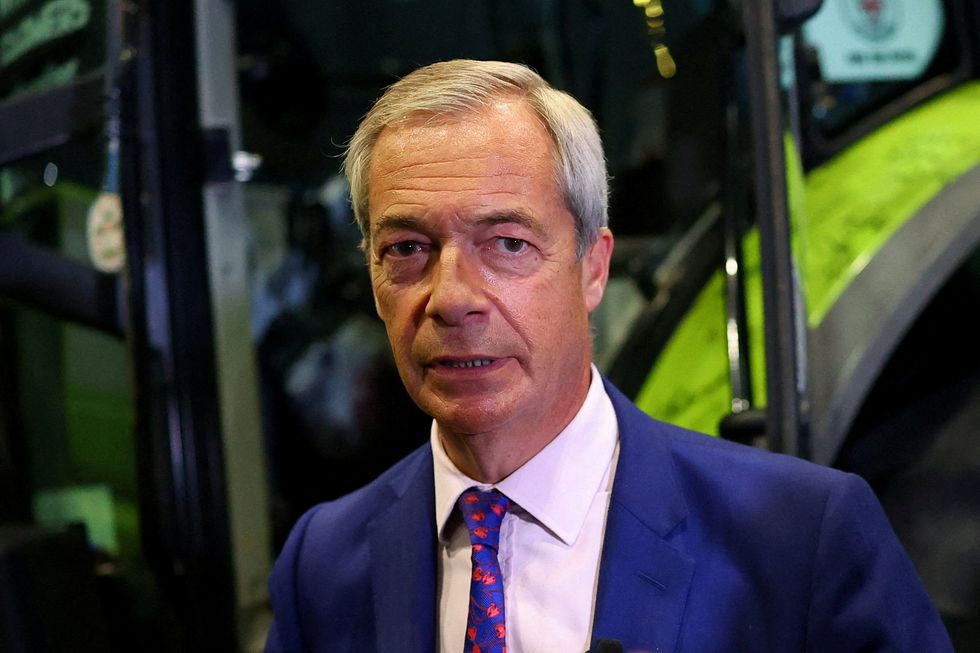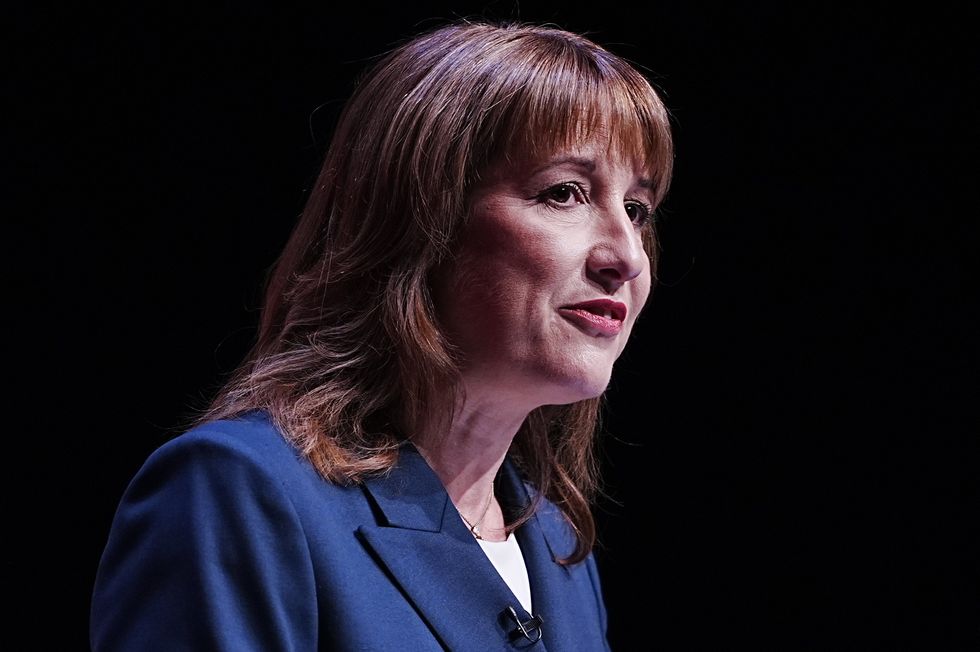Reform UK’s deputy leader Richard Tice has branded Sir Keir Starmer a “hypocrite-in-chief” as the Prime Minister prepares to blame Nigel Farage for tax rises.
Chancellor Rachel Reeves is expected to raid the pockets of hard-working Britons to plug a £41.2billion deficit and restore a near £10billion fiscal buffer.
Hiking taxes could risk busting Labour’s manifesto commitment not to raise income tax, National Insurance and VAT.
Ms Reeves already raised employers’ National Insurance Contributions from 13.8 per cent to 15 per cent last year in a bid to claw back £25billion into the Treasury’s coffers.
However, Labour’s plan to pin the blame on Mr Farage over his support for Brexit sparked a furious response from Mr Tice.
“First, Keir blamed the Tories; now he is blaming Nigel, reaffirming his brand of ‘two-tier Keir’,” the Boston & Skegness MP said.
“Third time lucky, he should send Rachel back to the complaints department.
“Hypocrite-in-chief Keir is running out of people to blame after over a year in office. Voters know he is to blame.”

Mr Tice’s response comes after The Times revealed that Sir Keir is expected to accuse Mr Farage of “easy sloganeering” during the 2016 Brexit referendum campaign.
The Treasury is also expected to cite official figures which suggest Britain’s economy would be around £120billion bigger by 2035 if voters had not opted to leave the European Union, The Times has revealed.
The Prime Minister’s pivot to blame Brexit for the country’s economic woes comes after pro-EU campaign group Best for Britain found that 62 per cent of voters believe Brexit has been a failure.
Economic concerns came out as the main concern among those who now hold a negative view towards Britain’s departure to the EU, trumping both trade relations and dividing the nation.
Latest Developments
- Keir Starmer labels Channel crossings ‘Nigel Farage’s boats’ as PM lashes out at Reform leader over Brexit
- Nigel Farage hits back at Keir Starmer after being blamed for surging small boats: ‘Stop gaslighting the public!’
- Keir Starmer set to blame Nigel Farage for TAX RISES as PM blasts Brexit again

More than two-thirds of voters claimed Mr Farage is responsible for Brexit being more of a failure for the UK, including 26 per cent of 2024 Reform UK supporters.
Despite voters pinning Britain’s economic difficulties to Brexit, EU member states have also struggled in recent years.
Britain’s GDP grew by 0.3 per cent in the second quarter of 2025, significantly higher than the 0.1 per cent Eurozone average.
In a warning to Sir Keir, who was fleshing out his Brexit attack lines at the Labour Party Conference last month, polling guru Luke Tryl said: “On the one hand, you get people in focus groups who say ‘Farage did Brexit and walked off’ and that may shore up his left flank.

“On the other hand, most leavers who say Brexit hasn’t worked say because politicians did it badly, not that it couldn’t work, Farage can argue he’d do it properly.”
More in Common also found that 54 per cent of voters think Sir Keir spends too much time blaming the Tories for the country’s economic woes, including 38 per cent of Labour voters and 77 per cent of Reform UK supporters.
However, the Office for Budget Responsibility (OBR) is expected to downgrade its forecast of Britain’s productivity, making it more likely Ms Reeves will have to increase taxes to avoid breaking her fiscal rules.
Sir Keir has been ramping up his Brexit barbs in recent weeks in an attempt to stifle support for Reform UK.
During an interview with GB News, the Prime Minister even attempted to pin the blame for the small boats crossings on Mr Farage.

Sir Keir said: “I would gently point out to Nigel Farage and others that before we left the EU, we had a returns agreement with every country in the EU and he told the country it would make no difference if we left. He was wrong about that. These are ‘Farage boats’ coming across the Channel.”
The Prime Minister appears to have been referring to the EU-wide Dublin Convention, which includes a provision to return asylum seekers to the first member state they arrived in.
However, the UK’s final few years of participation in the Dublin Convention would indicate that Britain was a net recipient of asylum seekers.
Home Office data revealed that 676 asylum seekers were transferred from Britain in 2016 and 2017, while 1,019 illegal migrants were transferred to the UK over the same period.
The problem worsened in 2018, when only 209 out of 5,500 requests for asylum seekers to be returned were completed, while the UK accepted 1,215 migrants.
Our Standards:
The GB News Editorial Charter







Follow